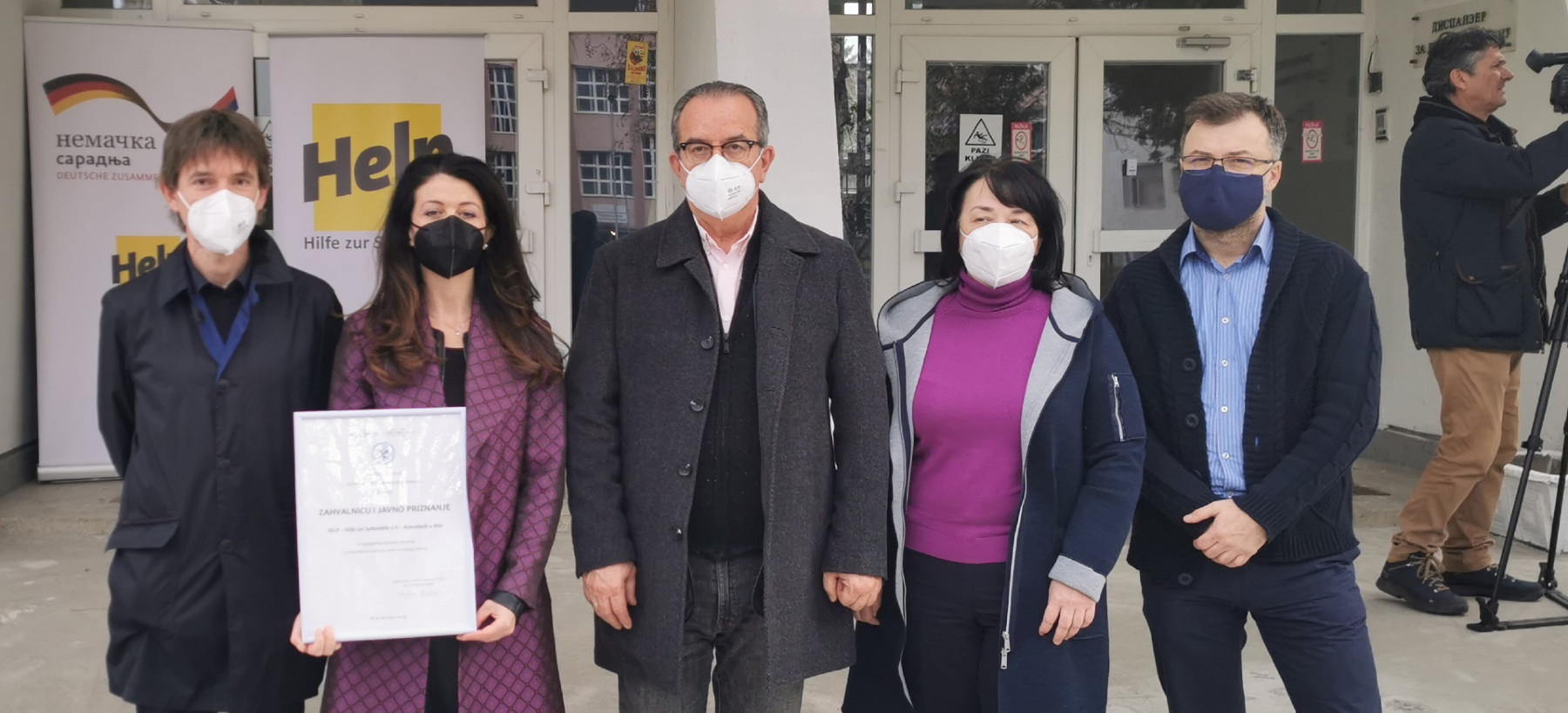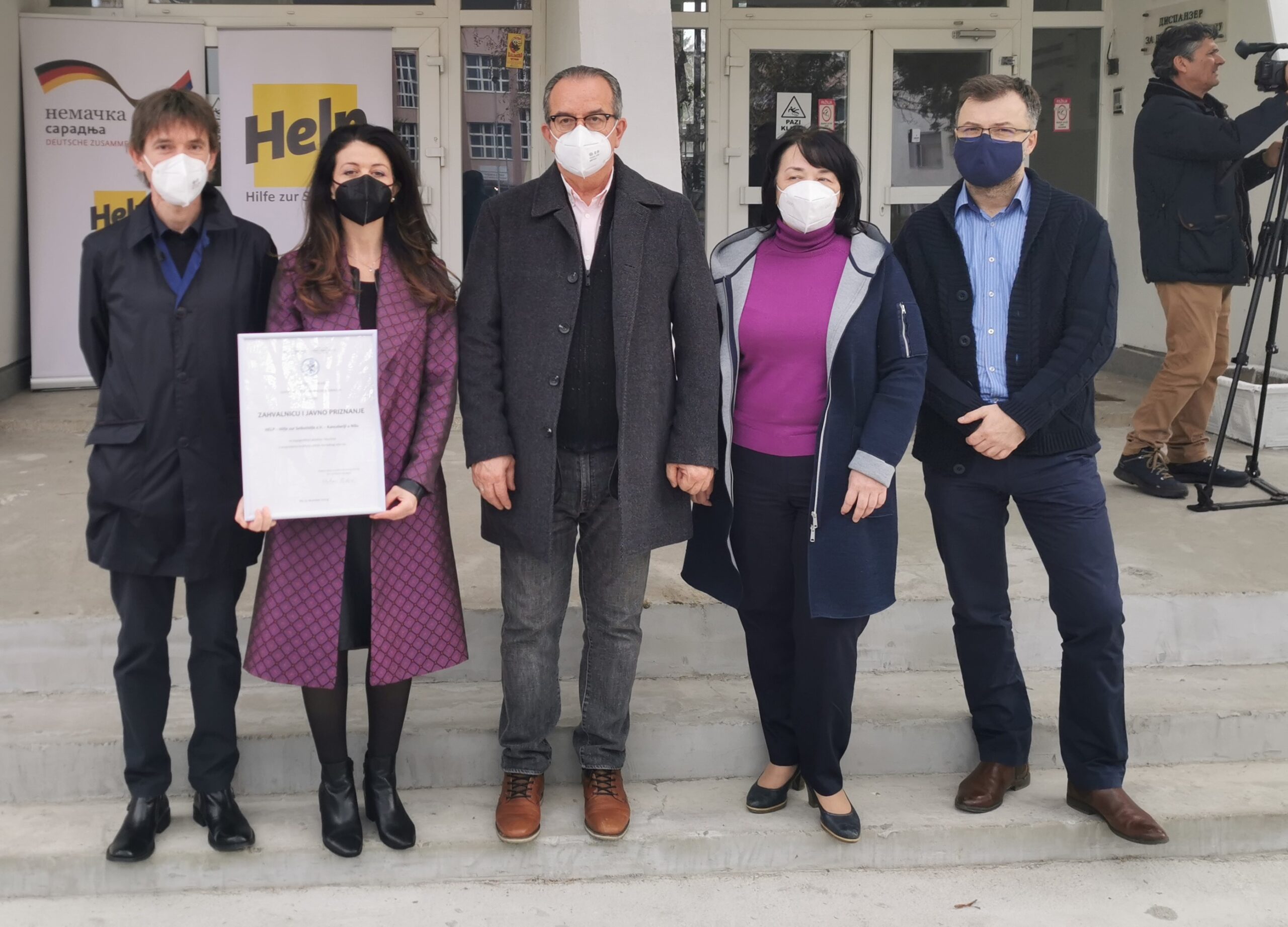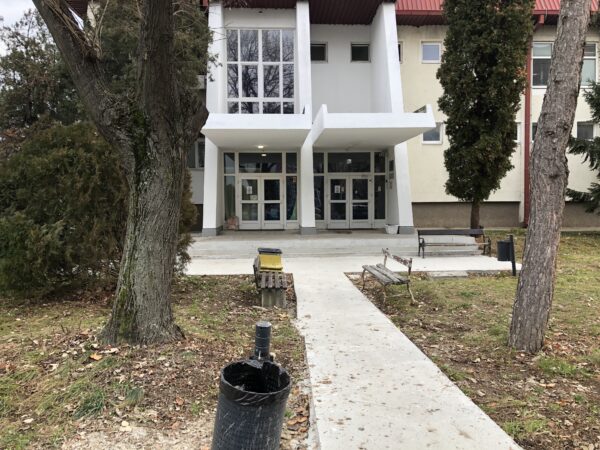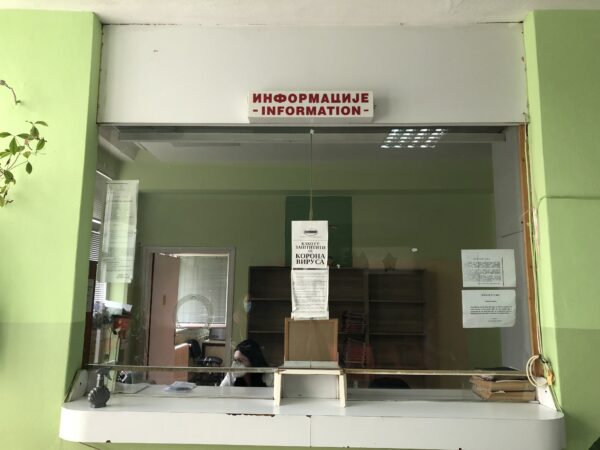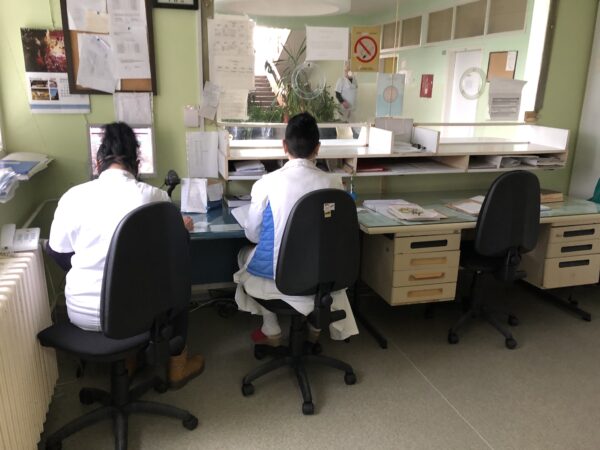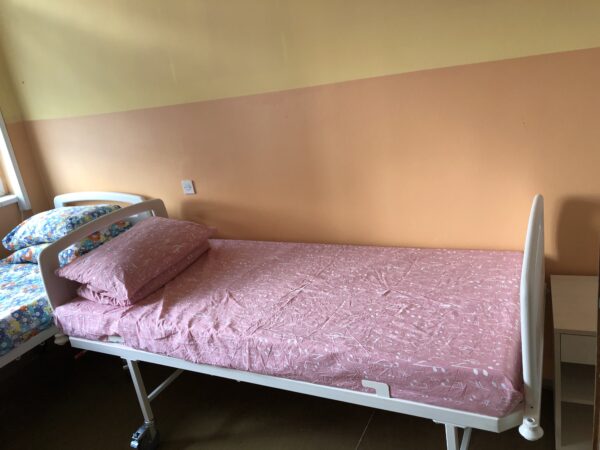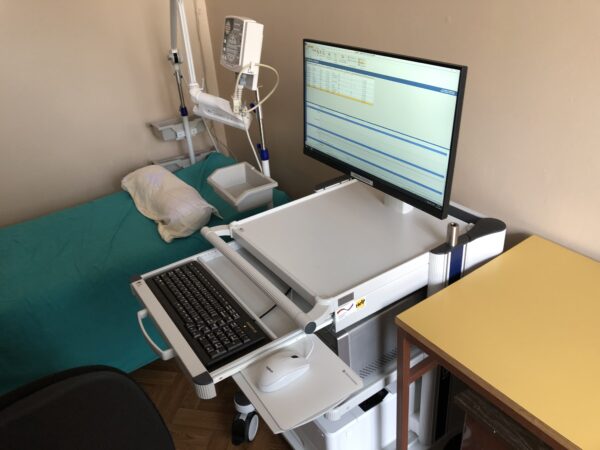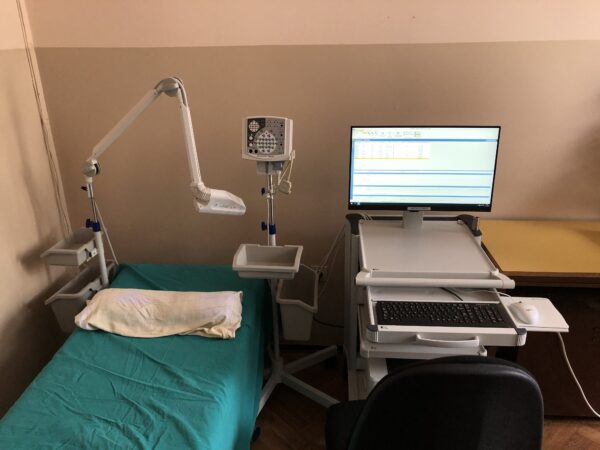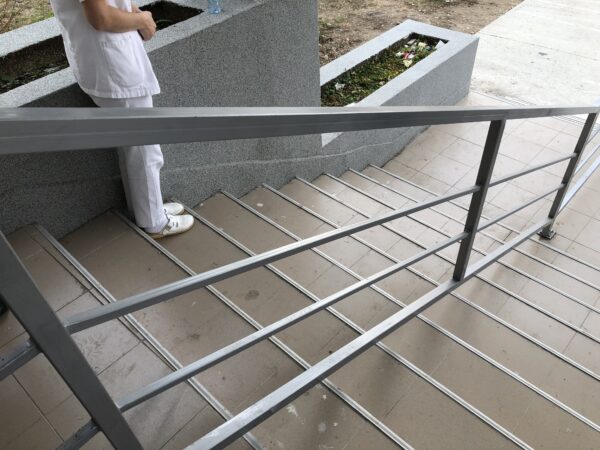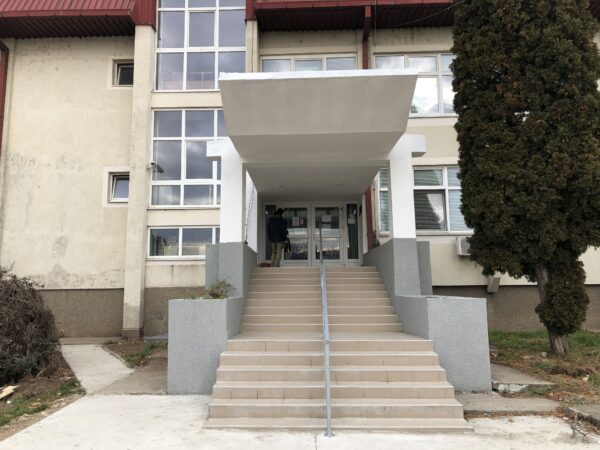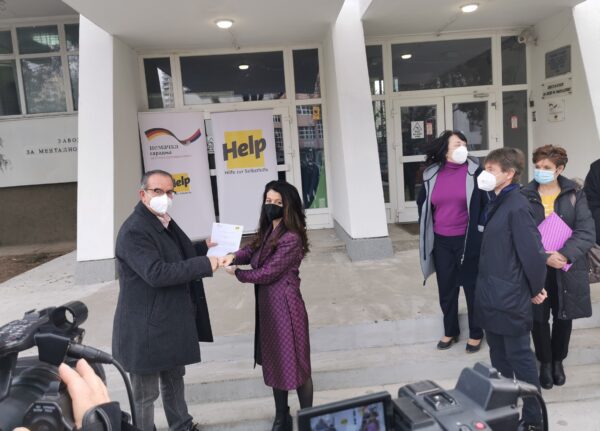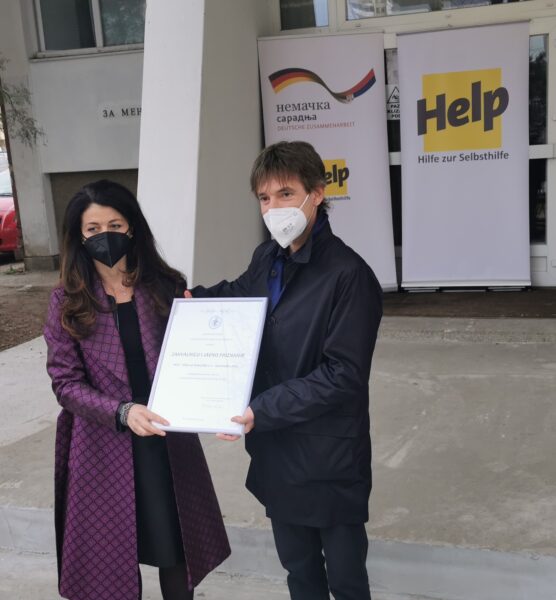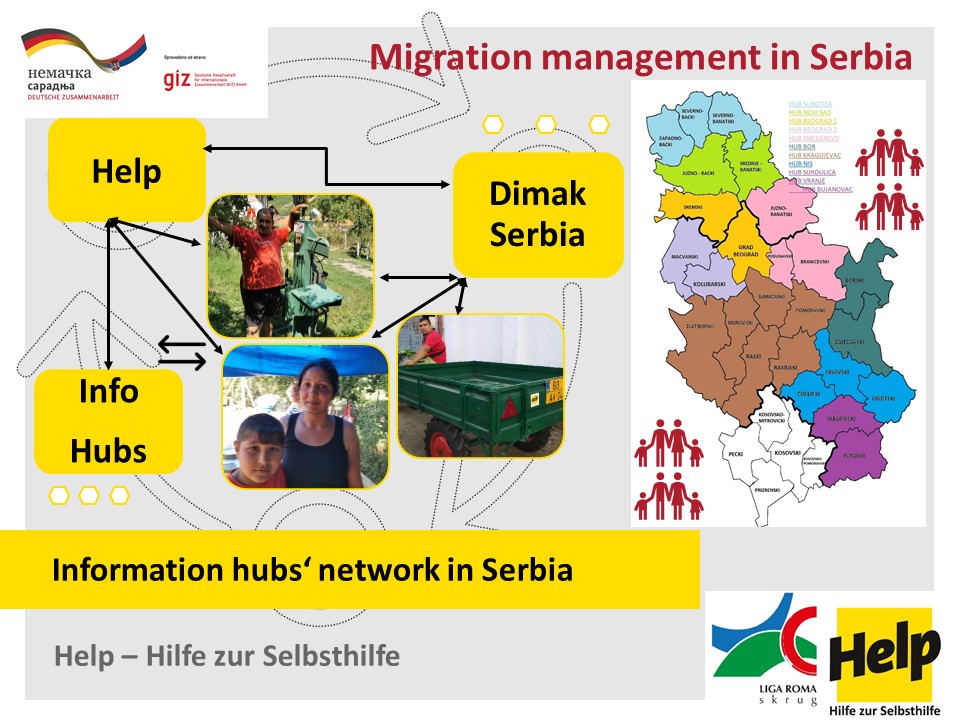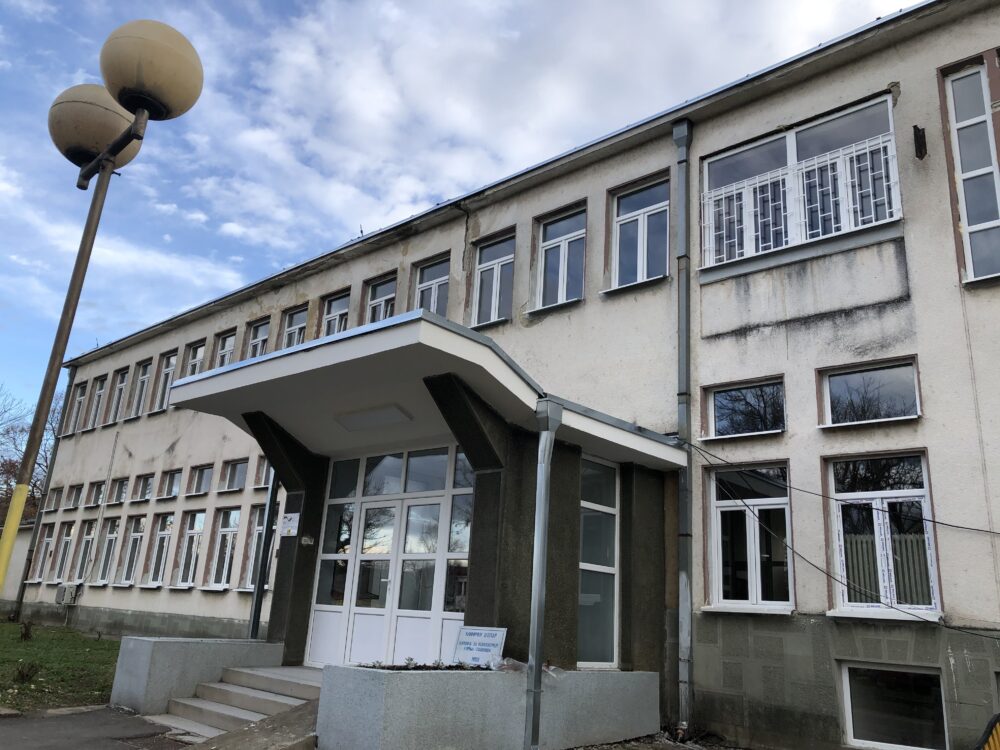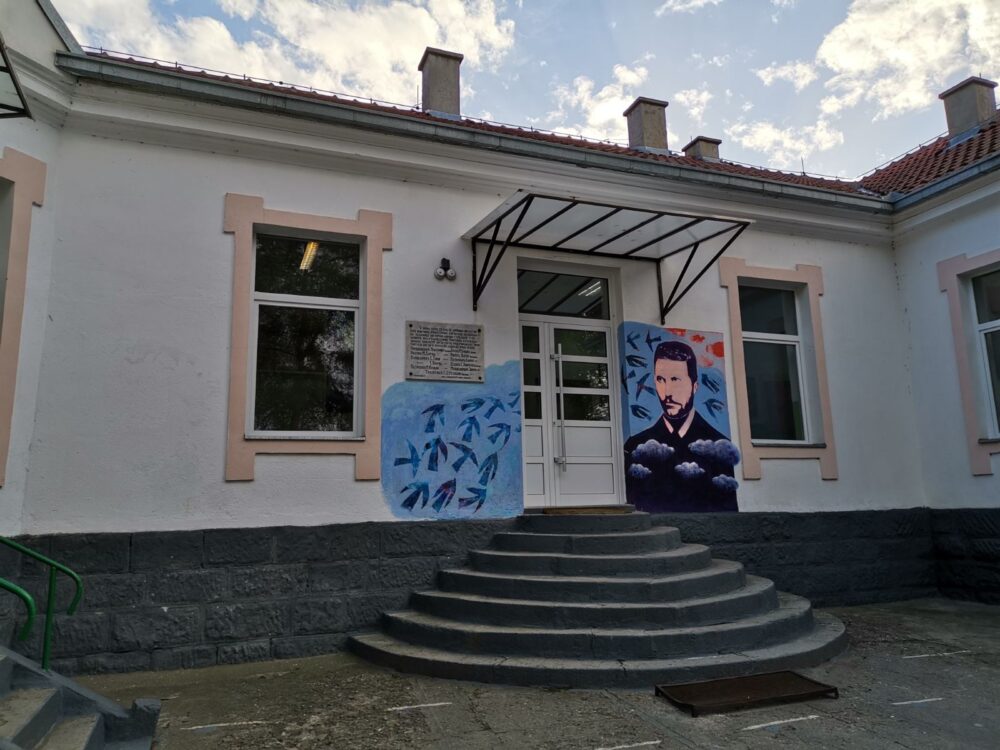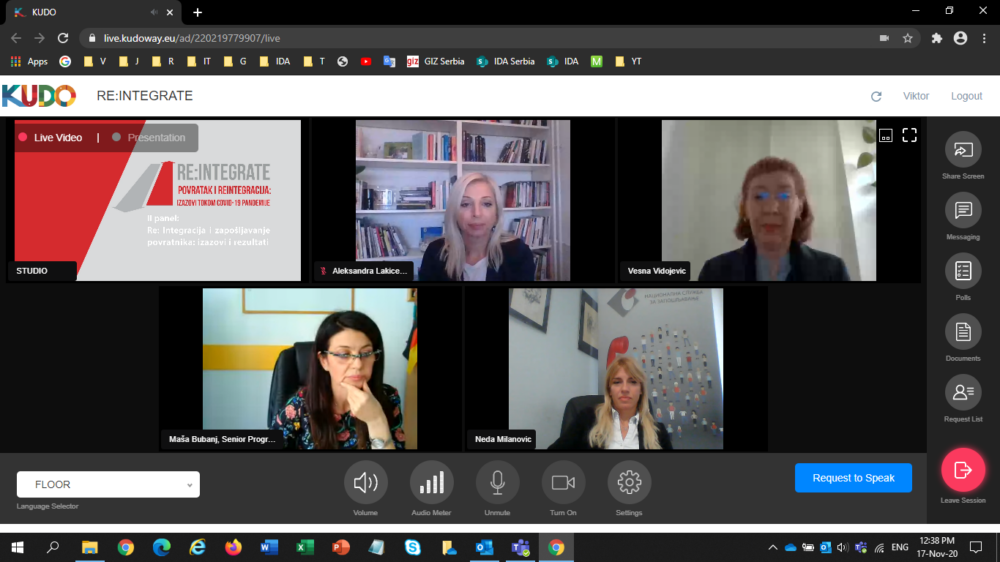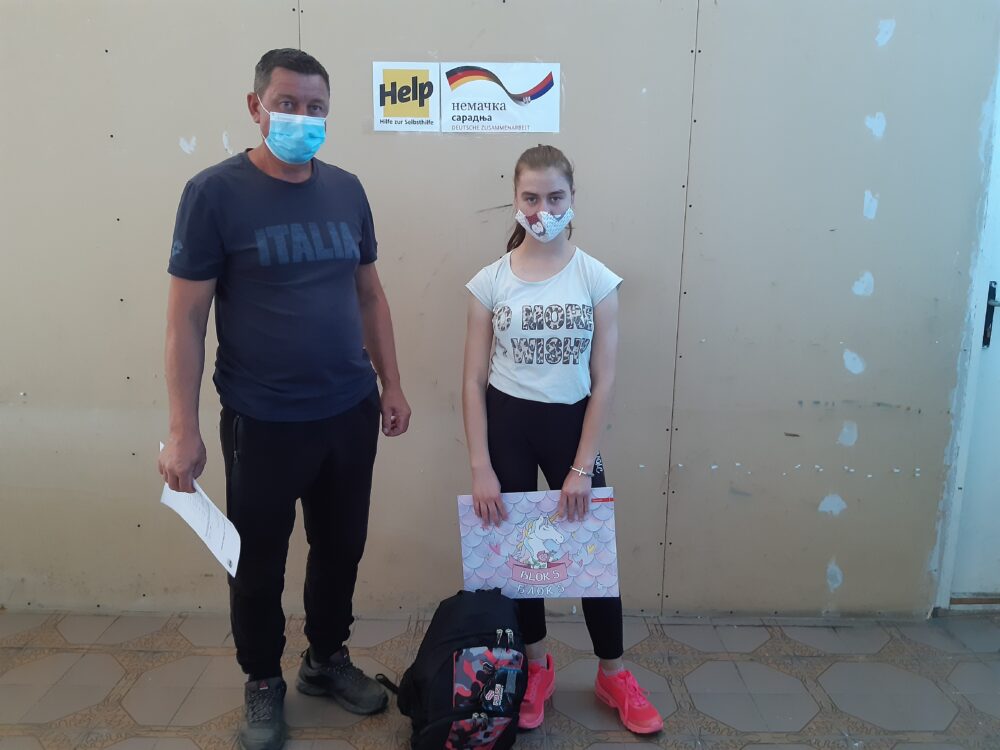Mental health is a national capital
Donation of EEG device, equipment, furniture and renovation of front and side-entrances for improving the functional capacities of reception and diagnostic treatment in the Center for Mental Health Protection in Nis.
The Centre for Mental Health Protection, Clinical Centre Nis, treats between 50 and 60 patients a day in daily hospitals and performs up to 4,000 outpatient checkups. Given that the pandemic is placing pressure on mental health facilities by increasing the number of patients and the number of treatments, Help continued supporting the Centre through equipment and some of the most urgent reconstruction work.
"Mental health is part of the public health and represents the national capital of society as a whole. To reduce the impact of mental disorders on the local and wider community, it is necessary to prevent and improve the mental health through structured multisectoral cooperation and support. " pointed out Vladimir Djordjevic, MD PhD Assoc. Prof., head of the Centre for Mental Health Protection, Clinical Centre Nis.
In the Centre, they note that problems in children occur at all ages and that all serious psychiatric disorders have their roots in childhood or adolescence.
"Since the beginning of the pandemic, the most vulnerable population is the one who visits child psychiatry - children with autism spectrum disorders, serious behavioural problems and affective disorders and psychosis," said Miodrag Stanković, MD PhD Assoc. Prof., head of the Daily Hospital for Children of the Department of Child and Adolescent Psychiatry, CC Nis.
In addition to the most valuable part of the donation, the EEG device, which is one of the basic diagnostic tools, the front and side-entrances, stairs and handrail for safer access for people with disabilities have been fitted. This increases functionality and reduces the risk of injuring patients.
Director of the Clinical Center Nis, Prof. Dr Zoran Perisic thanked Help and the German government: "One should have friends both in good times and in difficult times. The work of the organisation Help for quite some time deserves every praise."
Prof. Perisic added that the doors of the Clinical Centre are open to all who want to get involved and work together for the benefit of marginalized groups.
The Clinical Centre Nis is the second-largest institution of the tertiary level of health care in Serbia, whose services are used by almost three million citizens of the southeast and south of Serbia.
The equipment and works, worth 4.329.177,73 RSD, were carried out within the Help project "Management of Migration and Support to the Return of Asylum Seekers II", which is part of the global program "Migration for Development" (PME) funded by the German Federal Ministry for Economic Cooperation and Development (BMZ) implemented by Deutsche Gesellschaft für Internationale Zusammenarbeit (GIZ).
Project
Migration management and support to return of asylum seekers II
Increasing the social inclusion of vulnerable, improving the living conditions of returnees and extremely vulnerable families and providing the necessary information to returnees regarding readmission.
